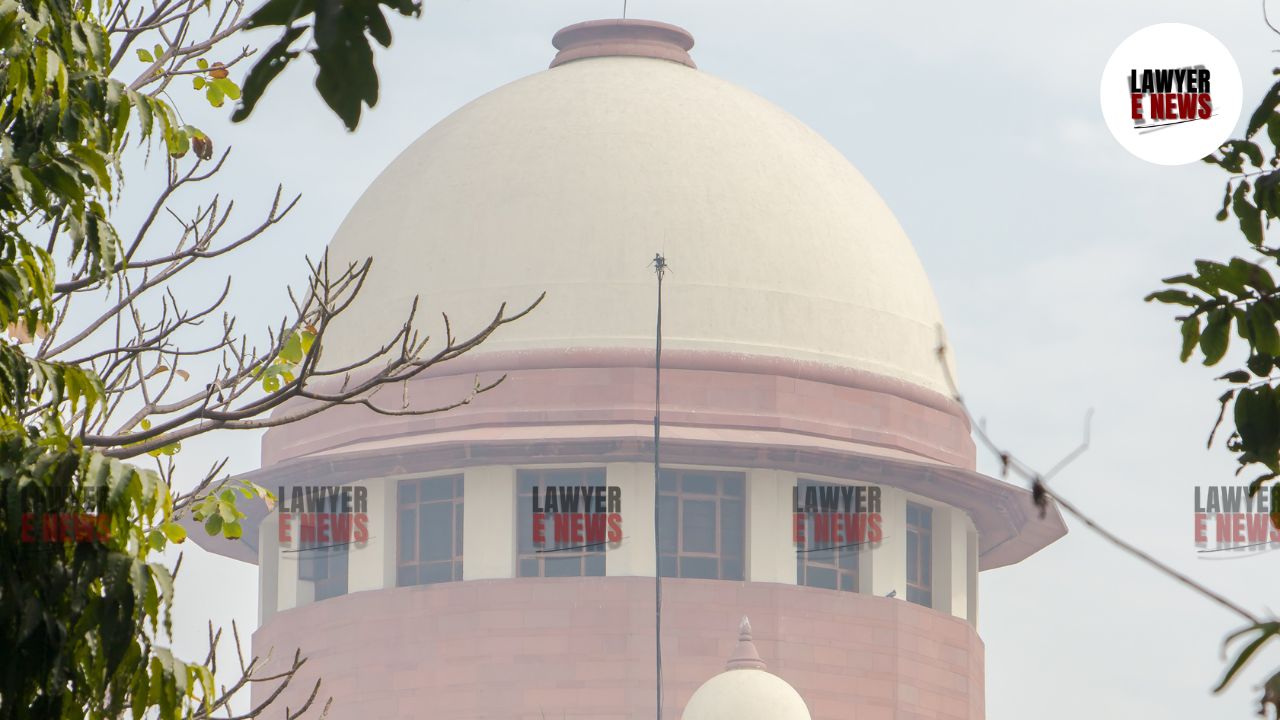-
by Admin
15 February 2026 5:35 AM



The Supreme Court of India, in a recent hearing, directed the Faizabad Bar Association to refrain from passing resolutions for abstaining from work. The Court stressed that any grievances the members have should be addressed through proper legal channels, such as approaching the District Judge or the Administrative Judge of the High Court. The judgment underscores the judiciary's stance against work abstentions that disrupt court functioning and affect the administration of justice.
The case arose from a Public Interest Litigation (PIL) filed by the Faizabad Bar Association challenging actions taken by the Bar Council of Uttar Pradesh. The Association had earlier passed resolutions for abstaining from work, which led to a confrontation with the High Court of Judicature at Allahabad, Lucknow Bench. The High Court highlighted the problematic conduct of the Bar Association members, leading to the current proceedings before the Supreme Court.
During the proceedings, the Supreme Court, presided over by Justices Surya Kant and Ujjal Bhuyan, was apprised of the High Court's observations regarding the Faizabad Bar Association's actions. The High Court, in its judgment, criticized the Bar Association for passing resolutions that hindered the functioning of the court. The Supreme Court took serious note of this, acknowledging the disruptive impact such actions have on the judicial process.
The Court made it clear that such resolutions, which advocate for abstention from work, are not acceptable. The bench emphasized that grievances of Bar members should be redressed through formal mechanisms within the judicial system, rather than resorting to actions that impede the court’s functioning.
The Supreme Court's directive is grounded in the principle that the administration of justice must not be obstructed by any form of collective action that halts court proceedings. The Court's order reflects a commitment to ensuring that any issues within the Bar are addressed through lawful and procedural means, maintaining the integrity of the judicial system.
The bench ordered that every office bearer of the Faizabad Bar Association must file an affidavit by the next hearing date, affirming that they will not pass any further resolutions to abstain from work. The affidavits are to be submitted before the District Judge, the High Court, and the Supreme Court.
Justice Surya Kant observed, "The practice of passing resolutions to abstain from work is not in the interest of justice and cannot be condoned. The Bar must seek redressal of grievances through appropriate legal forums."
The Supreme Court’s ruling serves as a stern reminder to Bar Associations across the country that the administration of justice cannot be disrupted by actions such as work abstentions. By requiring undertakings from the Faizabad Bar Association's office bearers, the Court has reinforced the importance of adhering to lawful procedures for grievance redressal. This judgment is expected to have significant implications for the conduct of Bar Associations nationwide, ensuring that the judicial process remains uninterrupted.
Date of Decision: September 2, 2024.
Faizabad Bar Association vs. Bar Council of Uttar Pradesh & Ors.
